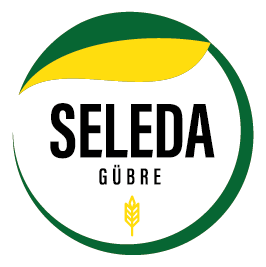With the vision of “zero waste”, Seleda Biyogaz has come to life as Europe’s largest integrated biogas fertilizer production facility in Babaeski district of Kırklareli in 2017 on an area of 200,000 m2 of 4,268 MW to invest in the Turkish energy and fertilizer industry.
Kurumsal
Biogas
What is Biogas?
Renewable energy is defined as the conversion of energy sources that are constantly existing in nature such as sun, wind and water into electrical energy without generating any waste and without harming the environment. The inputs required for the fermentation process include livestock waste, food crop residues, agricultural waste and organic waste from industries. Biogas is therefore a 100% renewable energy source. Seleda Biogas produces clean energy by processing approximately 1000 tons of organic waste per day from Trakya in its facility.
What is an “Integrated Biogas Fertilizer Production Plant”?
In the facility, which has a waste preparation and feeding system, biogas production, composting area, solid and liquid fertilizer production and liquid fermented waste biological treatment, all processes continue in an integrated manner. This “zero waste” vision creates an important model for their production, ensuring efficient use of resources, reducing environmental pollution and carbon footprint.
What is the “Zero waste” Vision?
Zero waste vision is the transformation of the outputs generated at each stage in the integrated facility into a value added input. In the first step, the biogas process converts the organic waste input into energy and cogeneration (heat + steam) energy. While the clean energy that is formed covers the deficit in the country to some extent, the heat and steam output meets the needs of the facility (including digesters, compost facility, fertilizer facility, administrative buildings and social facilities). The compost resulting from the biogas process is processed in the fertilizer production facility, and the biogas liquid supplies liquid fertilizers. In this way, the facility produces fertilizers with the vision of zero waste while cleaning the environment and generating energy. Since the organic matter content of the liquid and compost produced from biogas is very high, all Seleda products contribute to the increase of the low organic matter in the country’s soils and to the development of good agricultural practices.
provides.
General Information on Anaerobic Digestion
Anaerobic digestion process is a process in which organic compounds are biodegraded in the airless environment and biogas is obtained as a product. The anaerobic digestion process generally takes place in four main reaction steps. These steps are:
Hydrolysis
Acidification
Acetate production
Methane production
Each of these steps is performed by different bacterial populations. As a result of a reaction, organic matter, which we call raw material, is transformed into smaller and degradable form. As a result of these reactions, methane and carbon dioxide gases (biogas), biogas liquid and compost with nutrient-rich content are formed.
Did you know?
The separation of wastes is carried out in an oxygen-free environment without contact with ambient air and therefore without any odor, the risks of ammonia release and water pollution are eliminated to some extent.
Biogas produced from organic matter contributes to a significant reduction in greenhouse gas emissions and improvement of air quality.
Seleda Biogas prevents 273,000 tons of carbon dioxide emissions per year and contributes to the ecological footprint since 2017.
It meets the energy needs of 8,536 households per day, renewable and continuously.
More than five tons of carbon dioxide are emitted for every tonne of nitrogen fertilizer produced. Therefore, factory emissions are prevented when fermented compost resulting from biogas production is used instead of other fertilizers produced in industry.

